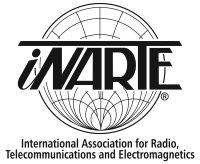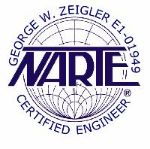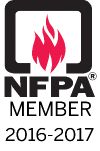Facility Owner and Manager Question. Who Is Really Responsible For Anything?
What Does An Architect Do
Architects are responsible for ensuring that the design as it is assembled and integrated in the contract documents complies with fire, safety, and all other applicable building codes.
Here is a typical canned statement from an architect firm regarding building responsibilities.
Contractor's performance, workmanship and materials shall comply with national fire protection association codes, state and local building codes, and/or all other applicable codes and ordinances. Contractor shall comply with rules and regulations of public utilities and municipal departments affected by connection of services. Contractor shall obtain and pay for all permits, licenses, fees and inspections required for the work under this contract unless otherwise specified. Contractor shall be held responsible for any violation of the law. Contractor shall maintain all necessary signal lights and guards for the safety of the public.
Therefore, holistic facility electrical protection is not possible by using only an architect without special instructions from a holistic facility electrical protection specialist.
What Does An Electrical Engineer Do
Electrical engineers create, design, test and oversee the building of electrical equipment. This could include motors, navigation systems, radio and communication systems and more. Often, electrical engineers work with project managers to make sure they deliver quality devices on time and within budget. Anything with wires and electricity running through it has been touched by an electrical engineer.
Electrical Engineers often look for new ways to make devices more energy efficient or innovative. They understand electricity as a power source and have the ability to create complex calculations and blueprints to harness that power. After designing, they oversee manufacture and test the devices. Electrical Engineers understand safety codes needed for creating electrical devices, and work make sure those safety standards are met.
Therefore, holistic facility electrical protection is not possible by using only an Electrical Engineer without special instructions from a holistic facility electrical protection specialist.
Important Notices And Disclaimers Concerning NFPA® Documents
Notice and Disclaimer of Liability Concerning the Use of NFPA Documents
NFPA® codes, standards, recommended practices, and guides (“NFPA Documents”), of which the document contained herein is one, are developed through a consensus standards development process approved by the American National Standards Institute. This process brings together volunteers representing varied viewpoints and interests to achieve consensus on fire and other safety issues. While the NFPA administers the process and establishes rules to promote fairness in the development of consensus, it does not independently test, evaluate, or verify the accuracy of any information or the soundness of any judgments contained in NFPA Documents.
The NFPA disclaims liability for any personal injury, property or other damages of any nature whatsoever, whether special, indirect, consequential or compensatory, directly or indirectly resulting from the publication, use of, or reliance on NFPA Documents. The NFPA also makes no guaranty or warranty as to the accuracy or completeness of any information published herein.
In issuing and making NFPA Documents available, the NFPA is not undertaking to render professional or other services for or on behalf of any person or entity. Nor is the NFPA undertaking to perform any duty owed by any person or entity to someone else. Anyone using this document should rely on his or her own independent judgment or, as appropriate, seek the advice of a competent professional in determining the exercise of reasonable care in any given circumstances.
The NFPA has no power, nor does it undertake, to police or enforce compliance with the contents of NFPA Documents. Nor does the NFPA list, certify, test, or inspect products, designs, or installations for compliance with this document. Any certification or other statement of compliance with the requirements of this document shall not be attributable to the NFPA and is solely the responsibility of the certifier or maker of the statement.
Therefore, holistic facility electrical protection is not possible by using only the NFPA Documents without special instructions from a holistic facility electrical protection specialist. The NFPA issues these documents and does not have any responsibility for their content or intent.
What Is The National Electrical Code Good For
The NEC purpose states “Practical Safeguarding. The purpose of this Code is the practical safeguarding of persons and property from hazards arising from the use of electricity.”
When the NEC is used it states under Adequacy “This Code contains provisions that are considered necessary for safety. Compliance therewith and proper maintenance results in an installation that is essentially free from hazard but not necessarily efficient, convenient, or adequate for good service or future expansion of electrical use. Informational Note: Hazards often occur because of overloading of wiring systems by methods or usage not in conformity with this Code. This occurs because initial wiring did not provide for increases in the use of electricity. An initial adequate installation and reasonable provisions for system changes provide for future increases in the use of electricity.”
When new facilities are being built or updated the facility electrical protection is the only vehicle to ensure the best personnel protection, equipment reliability, and business continuity.
Therefore, holistic facility electrical protection is not possible by using only the National Electrical Code (NEC). Within the Purpose of the NEC it basically states that it is essentially free from hazard but not necessarily efficient, convenient, or adequate for good service or future expansion of electrical use.
What Can or Should A Facility Owner Do
A facility owner seems to have a catch 22 position when owning, operating, building or upgrading a facility. The facility owner does not know that the architect, electrical engineer, electrician, or NFPA standards are not going to provide him with a building that has holistic facility electrical protection. His building is going to be built only for personnel safety and fire protection.
Getting The Facility Built or Upgraded
Architects, Electrical Engineers, Electricians and other Trade Personnel objective is to get the building built. This is usually means using the NEC, NFPA Fire Codes, Building Codes, and any other standards or best practices dealing with safety. The problem is that many other standards, best practices and knowledge are required to ensure holistic facility electrical protection.
What Is A Holistic Facility Electrical Protection Specialist
Holistic Facility Electrical Protection Specialist ensures the facility owner that are performance codes, standards and practices are implemented and done right the first time. The facility owner of new facility or upgraded facility gets of the following:
- Equipment reliability
- Business continuity
- Maximum uptime
- Best protection standards in-place
- Best protection practices in-place
- Verify that all protection codes, standards and practices properly in place and functioning
Below is definition of words that we believe should be very important to understand for facility owners and facility managers.
Acceptable is able to be tolerated or allowed.
Average is a number expressing the central or typical value in a set of data, in particular the mode, median, or (most commonly) the mean, which is calculated by dividing the sum of the values in the set by their number.
Belief is an acceptance that a statement is true or that something exists.
Best Practice is a method or technique that has been generally accepted as superior to any alternatives because it produces results that are superior to those achieved by other means or because it has become a standard way of doing things, e.g., a standard way of complying with legal or ethical requirements.
Business Continuity Planning (BCP) is the creation of a strategy through the recognition of threats and risks facing a company, with an eye to ensure that personnel and assets are protected and able to function in the event of a disaster.
Codes is a set of rules about how people should behave or about how something must be
Comprehend is to grasp mentally; understand.
Compromise is to accept standards that are lower than is desirable.
Cost is an amount that has to be paid or spent to buy or obtain something.
Desirable is wanted or wished for as being an attractive, useful, or necessary course of action.
Desire is a strong feeling of wanting to have something or wishing for something to happen
Downtime is the time during which a machine, especially a computer, is out of action or unavailable for use.
Duplicate is to do exactly like something else, especially through having been copied.
Efficient performing or functioning in the best possible manner with the least waste of time and effort; having and using requisite knowledge, skill, and industry; competent; capable: a reliable.
Electric Power Quality, or simply power quality, involves voltage, frequency, and waveform. Good power quality can be defined as a steady supply voltage that stays within the prescribed range, steady Ac. Without the proper power, an electrical device (or load) may malfunction, fail prematurely or not operate at all.
Electrical Engineer is someone who designs and develops new electrical equipment, solves problems and tests equipment. These engineers are usually concerned with large-scale electrical systems such as motor control and power transmission, as well as utilizing electricity to transmit energy.
Electrical Installation Standards. An electrical installation is defined as “the set of components between a power source and the consumers”. The primary purposes of the installation standards are: To ensure the protection and safety of property against hazards (overloads, short circuits, voltage drops).
Electrician is a tradesman specializing in electrical wiring of buildings, stationary machines, and related equipment. Electricians may be employed in the installation of new electrical components or the maintenance and repair of existing electrical infrastructure.
Emulate is to strive to equal or excel.
Equipment Reliability simply put availability is a measure of the % of time the equipment is in an operable state while reliability is a measure of how long the item performs its intended function. We can refine these definitions by considering the desired performance standards. A piece of equipment can be available but not reliable.
Expectation is a strong belief that something will happen or be the case in the future
Expense is the cost required for something; the money spent on something
Failure is the omission of expected or required action.
Five 9’s, commonly taken to mean "99.999%", may refer to: High availability of services, when the downtime is less than 5.26 minutes per year; Nine (purity).
SPGS believes that this almost an impossible goal to achieve or maintain
Hope is a feeling of expectation and desire for a certain thing to happen.
Implement is to put (a decision, plan, agreement, etc.) into effect.
Install is to place or fix (equipment or machinery) in position ready for use.
Investment is the action or process of investing money for profit or material result.
Loss is an amount of money lost by a business or organization.
MTBF abbreviation for mean time between failures. mean time between failures (MTBF): the number of hours producing per week, divided by failures per week; the average number of hours producing until a failure is encountered.
MTBF for identical equipment in different facilities will not be identical. So how in the world can manufacturers claim any valid MTBF for anything except from their own testing results in a controlled environment.
National Electrical Code 90.1 Purpose.
(A) Practical Safeguarding. The purpose of this Code is the practical safeguarding of persons and property from hazards arising from the use of electricity. This Code is not intended as a design specification or an instruction manual for untrained persons.
(B) Adequacy. This Code contains provisions that are considered necessary for safety. Compliance therewith and proper maintenance results in an installation that is essentially free from hazard but not necessarily efficient, convenient, or adequate for good service or future expansion of electrical use.
Informational Note: Hazards often occur because of overloading of wiring systems by methods or usage not in conformity with this Code. This occurs because initial wiring did not provide for increases in the use of electricity. An initial adequate installation and reasonable provisions for system changes provide for future increases in the use of electricity.
Outage is a period when a power supply or other service is not available or when equipment is closed down.
Overhead is those costs required to run a business, but which cannot be directly attributed to any specific business activity, product, or service. Thus, overhead costs do not directly lead to the generation of profits. Overhead is still necessary, since it provides critical support for the generation of profit-making.
Perceived is to become aware or conscious of (something); come to realize or understand.
Percentage is any proportion or share in relation to a whole.
Plan is typically any diagram or list of steps with timing and resources, used to achieve an objective to do something. See also strategy. It is commonly understood as a temporal set of intended actions through which one expects to achieve a goal.
Practice is the actual application or use of an idea, belief, or method as opposed to theories about such application or use.
Profit is a financial gain, especially the difference between the amount earned and the amount spent in buying, operating, or producing something.
Protection is a person or thing that prevents someone or something from suffering harm or injury
Result is a consequence, effect, or outcome of something
Specialist is a person who concentrates primarily on a particular subject or activity; a person highly skilled in a specific and restricted field.
Standards are a level of quality or achievement, especially a level that is thought to be acceptable.
Subject-Matter Expert (SME) or domain expert is a person who is an authority in a particular area or topic. The term domain expert is frequently used in expert systems software development, and there the term always refers to the domain other than the software domain. A domain expert is a person with special knowledge or skills in a particular area of endeavor (e.g. an accountant is an expert in the domain of accountancy). The development of accounting software requires knowledge in two different domains: accounting and software. Some of the development workers may be experts in one domain and not the other.
The National Electrical Code (NEC), or NFPA 70, is a regionally adoptable standard for the safe installation of electrical wiring and equipment in the United States. It is part of the National Fire Codes series published by the National Fire Protection Association (NFPA), a private trade association.
Understanding is the ability to understand something; comprehension.
« Back to Blog






Comments